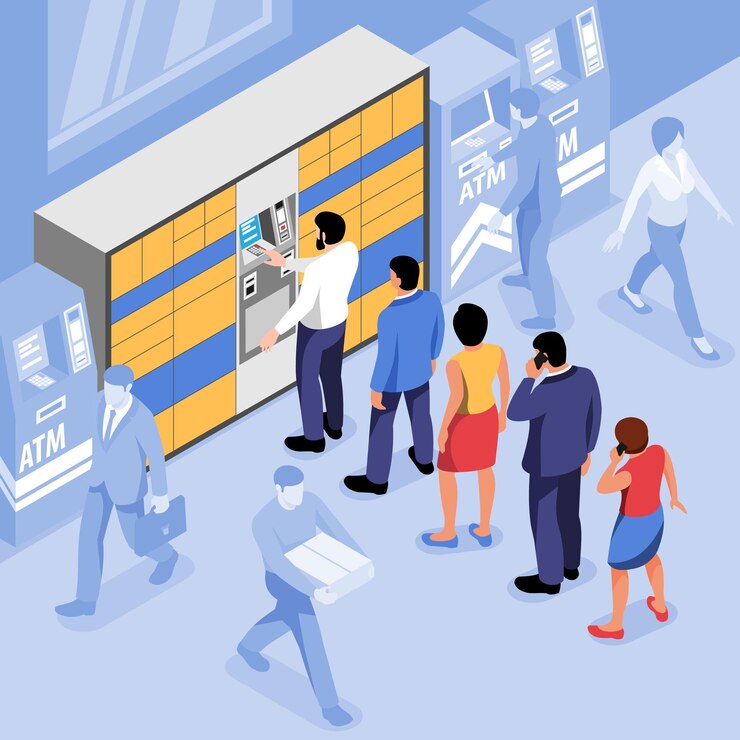Efficient customer service is a cornerstone of success for businesses and institutions. The adoption of Queue Management Systems (QMS) is transforming service delivery in Riyadh and across Saudi Arabia, providing smoother customer experiences while optimizing operational efficiency.
Understanding Queue Management Systems
What is a Queue Management System?
A Queue Management System is a technology-driven solution that helps businesses manage customer flow efficiently. By streamlining waiting lines and organizing service delivery, it ensures a positive experience for both customers and staff.
Key Features of a Queue Management System
- Token Generation: Customers receive tokens upon arrival, reducing confusion and promoting orderly service.
- Digital Displays: Real-time queue updates keep customers informed.
- Customer Feedback Integration: Post-service feedback mechanisms ensure continuous improvement.
Benefits of a Queue Management System
- Enhanced Customer Satisfaction: Reduced wait times and transparent processes improve customer experiences.
- Optimized Staff Utilization: Employees can focus on delivering quality service rather than managing queues.
- Data Insights: Analytics on customer flow and wait times aid decision-making.
Applications of Queue Management Systems
In Healthcare
Hospitals and clinics use QMS to minimize patient waiting times, ensuring timely and organized consultations.
In Banking
Banks implement QMS to streamline services such as cash deposits, withdrawals, and loan consultations, enhancing customer trust.
In Retail
Retail stores use QMS to manage billing counters and optimize customer service during peak hours.
In Public Sector Offices
Government offices in Saudi Arabia adopt QMS for services like passport issuance, vehicle registration, and licensing.
Queue Management System in Riyadh
Why Riyadh Needs Queue Management Systems
As the capital of Saudi Arabia and a commercial hub, Riyadh experiences high customer footfall in various sectors, necessitating efficient queue management.
Key Implementations in Riyadh
- Healthcare Facilities: Leading hospitals in Riyadh have embraced QMS to ensure smooth patient flow.
- Banks and Financial Institutions: Banks in Riyadh use QMS to provide hassle-free services to their customers.
- Shopping Malls: Large retail chains in Riyadh use QMS to enhance customer shopping experiences.
Technological Integration in Riyadh’s QMS
- Mobile applications allow customers to book slots in advance.
- AI-driven systems predict peak times and adjust service allocation dynamically.
- Touchless systems ensure safety and convenience in post-pandemic times.
Queue Management System in Saudi Arabia
National Adoption of QMS
Saudi Arabia’s Vision 2030 emphasizes technological advancement and customer-centric solutions. Queue Management Systems align with these goals by enhancing service quality nationwide.
Industries Leading the Adoption
- Healthcare: QMS systems are prevalent in hospitals across cities like Jeddah, Riyadh, and Dammam.
- Education: Universities use QMS for administrative processes and student services.
- Government Services: Public offices implement QMS for efficient management of citizen services.
Cultural and Economic Impacts of QMS
- Reduces time wastage, improving national productivity.
- Enhances customer satisfaction, boosting loyalty and reputation.
- Encourages digital transformation across sectors.
The Role of Technology in Queue Management Systems
AI and Machine Learning in QMS
Artificial intelligence enables predictive analytics for better resource allocation and reduced wait times.
Mobile Integration
Smartphone apps provide real-time updates, allowing customers to monitor queues remotely.
Cloud-Based Solutions
Cloud technology ensures scalability, allowing businesses to manage queues across multiple locations seamlessly.
Touchless Solutions
Post-pandemic, contactless QMS systems have gained traction, ensuring safety and convenience for customers.
Future Trends in Queue Management Systems in Saudi Arabia
Smart Cities and QMS
As Saudi Arabia invests in smart cities, such as NEOM, queue management systems will play a vital role in ensuring efficient service delivery.
Integration with IoT
Internet of Things (IoT) devices will enhance QMS by providing real-time data on customer flow and service efficiency.
Enhanced Customer Experiences
Future QMS will focus on personalizing customer experiences using data-driven insights.
FAQs About Queue Management Systems
1. What is the primary purpose of a Queue Management System?
The primary purpose of a Queue Management System is to streamline customer flow, reduce wait times, and improve overall service efficiency.
2. How does a Queue Management System work in Riyadh?
In Riyadh, QMS is used across various sectors like healthcare, retail, and banking to manage high customer footfall efficiently.
3. Are Queue Management Systems cost-effective for small businesses?
Yes, scalable and cloud-based QMS solutions are available, making them cost-effective for small businesses.
4. How does AI enhance Queue Management Systems?
AI enables predictive analytics, optimizing resource allocation, reducing wait times, and enhancing overall efficiency.
5. Why is queue management important in Saudi Arabia?
With its growing population and focus on technological advancement, queue management ensures efficient service delivery and aligns with Vision 2030 goals.
Conclusion
Queue Management Systems are revolutionizing customer service across Riyadh and Saudi Arabia. By adopting advanced technologies, businesses and institutions can enhance efficiency, reduce wait times, and deliver exceptional experiences. As Saudi Arabia progresses towards its Vision 2030 goals, Queue Management Systems will play a pivotal role in shaping its customer service landscape.

